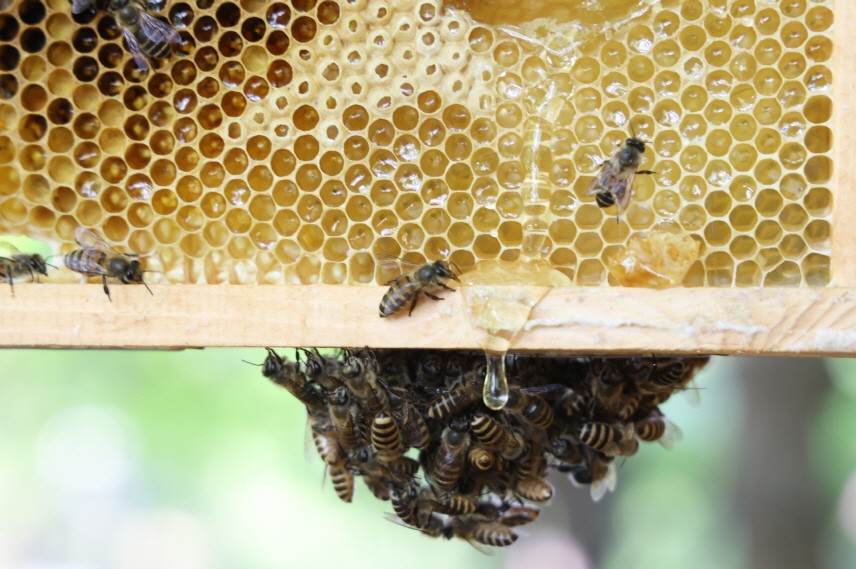LG has launched a social contribution project to cultivate ‘native bees’ to help restore the natural ecosystem.
This project involves creating a habitat for ‘native bees’ near Mount Jeonggwang, adjacent to Hwadam Forest, an ecological arboretum operated by the LG Sangsang Foundation in Gwangju City, Gyeonggi Province.
Bees engage in pollination which affects the production of over 70 species out of the top 100 crops. A decline in their population can lead to food shortages and ecological threats.
For native plants such as wild pear trees, reliance on native bees for pollination is higher than on western bees, making the protection of native bees crucial for preserving domestic ecosystems.
About 98% of native bees in Korea disappeared in the 2010s due to the spread of sacbrood disease. With recent climate changes, the bee population is again diminishing, highlighting the need for protection.
LG plans to increase the population by more than doubling it annually to reach 4 million by 2027.
The area near Hwadam Forest offers a rich environment with plenty of nectar trees and plants, providing a stable environment for bee cultivation. LG is also planning to expand the number of nectar plants.

This project is a collaboration with Kim Dae-lib, a master who holds nine patents for native bee cultivation technology, and the social enterprise ‘BeComFriends’, which supports beekeepers with developmental disabilities.
Kim Dae-lib said, “We must recognize the urgency that with bees disappearing, human food sources could vanish. We plan to provide various technologies and know-how with LG.”
LG is focusing on keeping and managing the environment conducive for 1 million bees to settle by June.
The proliferated bees will be used to aid beekeeping farms once the population reaches 4 million.
Kim Ji-young, CEO of BeComFriends, remarked, “To people with developmental disabilities, beekeeping can be a means of communicating with society. This collaboration with LG will broaden opportunities for independence.”
An LG official stated, “The native bee proliferation project is an activity aimed at preserving the ecosystem and we will strive to create an environment where we can coexist with nature.”
Meanwhile, the United Nations has designated May 20th each year as ‘World Bee Day’ to urge the conservation of bees.
Hwadam Forest was designated as a national preservation institution for rare and endemic plants by the Korea Forest Service in January 2024.